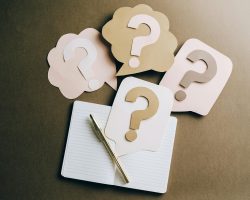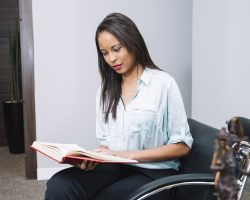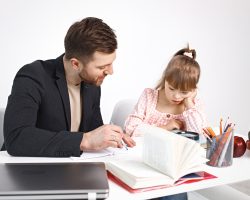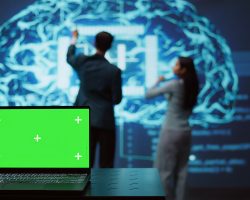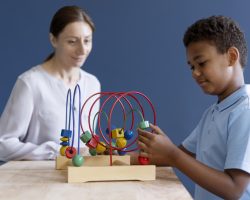Author Archives: vlm
ADHD and Exercise: How Activity Benefits NVLD and ADHD
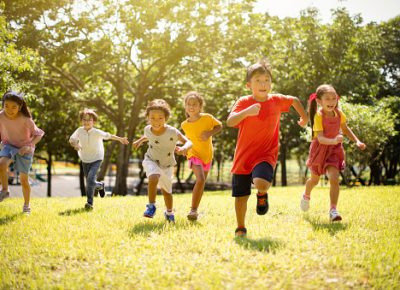 Let’s explore the links between ADHD and exercise and how activity can benefit ADHD, NVLD, and dyspraxia. Since individuals with ADHD have decreased dopamine levels, exercising can activate the brain’s release of neurotransmitters and dopamine, increasing attention and clear thinking.
Let’s explore the links between ADHD and exercise and how activity can benefit ADHD, NVLD, and dyspraxia. Since individuals with ADHD have decreased dopamine levels, exercising can activate the brain’s release of neurotransmitters and dopamine, increasing attention and clear thinking.
WATCH VIDEO BELOW
For individuals with ADHD, losing weight and gaining muscle is an added bonus for people seeking mental clarity and focus. Working out can help reduce impulsive behavior, enhance working memory, executive functioning, the ability to retain details, and stay organized and focused. Individuals with ADHD lack the supply of a specialized protein, but it can be increased with exercise. There is research discussing the strong correlation between obesity and individuals with ADHD. Food is often used as a coping mechanism for social and educational struggles. Exercising is extremely beneficial to an individual with ADHD because it can increase dopamine levels, help maintain a healthy weight, improve mood and self esteem, and avoid the possibility of co-occurring conditions such as diabetes and heart disease. For individuals with learning disabilities, working out at a gym or team sports can be difficult because of imapired visio-spatial abilities and inability to retain directions and focus. Even though it will not always be easy, pushing through situations of overstimulation can significantly improve mood, energy, learning, and decrease the possibility of meltdowns. School recess can be an amazing outlet for kids to release energy and find focus for classes for the rest of the day. It is extremely important for children with IEP’s and 504’s to have a recess included in their plan.ADHD and Exercise: Implementing a Plan
What are the best exercises for individuals with ADHD, NVLD, and dyspraxia? For some people, team sports are a great outlet for physical activity and it is essential to expose your child as young as possible to this kind of social setting. It is harder to breakthrough and introduce a team activity the older that they get. For other people, isolated exercises work better for them to find mental clarity. Running on a treadmill or track, lifting weights, and slower pace activities are effective, independent activities that will benefit your focus and mood. Improvement to visio-spatcial and hand-eye coordination can occur gradually. It’s very important to not put immense pressure on your child to excel in a team sport because it can bring anxiety and further stress for the child. Finding an activity that your child is comfortable participating in i54s the first step in helping them find clarity and improve self esteem. Overall, creating a positive and uplifting environment for physical activity is an integral part of stress release and finding mental clarity for individuals ADHD, NVLD, and dyspraxia. Remember that is not always what you say to your child, it is also what they see. If your child sees you practicing self care, they will be more encouraged to participate and maybe even participate alongside you! Taking the time to release stress and boost dopamine levels is essential to living an anxiety-free life!Subscribe to My YouTube Channel
 Linda Karanzalis, MS
Linda Karanzalis, MS
Linda Karanzalis, MS, is a former special education classroom teacher with over 25 years of experience in the areas of learning disabilities, ADHD, social-emotional learning, social skills training, and behavior management
NVLD at the National Learning Disabilities Conference
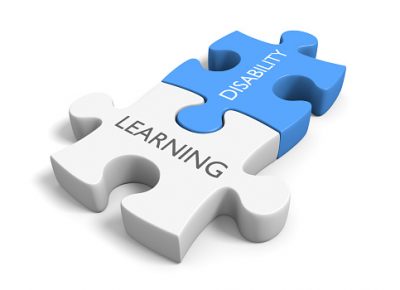 As I traveled to Orlando, Florida for the National Learning Disabilities conference, I was hopeful to learn more about non-verbal learning disorders (NVLD) and to better help those like myself (I’m a learning specialist with NVLD and ADHD). So little is known about NVLD so you may not be familiar with it. Could NVLD be something you or your or your child are struggling with?
As I traveled to Orlando, Florida for the National Learning Disabilities conference, I was hopeful to learn more about non-verbal learning disorders (NVLD) and to better help those like myself (I’m a learning specialist with NVLD and ADHD). So little is known about NVLD so you may not be familiar with it. Could NVLD be something you or your or your child are struggling with?
<< Scroll Down To Watch Video >>
National Learning Disabilities conference and NVLD
Once I arrived, I noticed very quickly that I would be the one sharing information and educating others about NVLD (to learn more about NVLD you can go to my website and you tube channel). Throughout the conference, meeting teachers, therapists, psychologists, and other health professionals from across the country, very few even knew about the existence Non-Verbal Learning Disorders. Another reason NVLD was not featured at this conference is because of controversy over the fact that some people believe NVLD does not exist. The learning disability community is not fully accepting the diagnosis of NVLD and creating solid plans for patients across the country. Why? Because NVLD is not recognized in the DSM which is the ‘bible’ of recognized disorders. Those with NVLD are not provided with a plan from their healthcare professional, simply because the professional does not know how to help them. The key to helping someone with NVLD thrive is to start working with them early on. It will be harder to help your child if you wait until they are older. I’ve made it my business as a learning specialist with NVLD to learn and provide effective interventions.Traveling to National Learning Disabilities conference with NVLD
Traveling with NVLD I was once again reminded just how difficult it was navigating through a new city, hotel, and convention center can be very overwhelming. To avoid anxiety while traveling, take the time to orient yourself with your new surroundings. Practice the route to your hotel room a few times and focus on landmarks around the property to help guide you safely to your room. This technique also applies to schools, work places, and public places that your/your child frequents. Practicing your pathways and creating routine is the safest way to decrease anxiety and increase independence. A helpful tool that can be used is the Google Street View application. It is free and allows you to explore the world in 360 with imagery and maps from Google. If you’re feeling unsure of where you are/should be going, the app can help guide you to your destination!Subscribe to My YouTube Channel
 Linda Karanzalis, MS
Linda Karanzalis, MS
Linda Karanzalis, MS, is a former special education classroom teacher with over 25 years of experience in the areas of learning disabilities, ADHD, social-emotional learning, social skills training, and behavior management
Announcing Our New NVLD Support Group
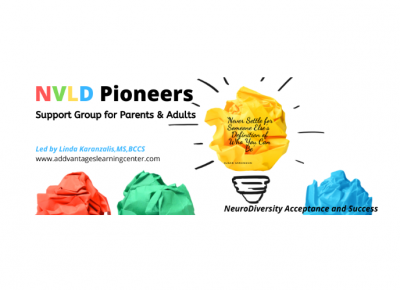 Do you ever feel frustrated and overwhelmed? Like you are the only one with or the parent of someone with a Non-Verbal Learning Disorder? Linda K. is here to let you know that you are NOT alone! She has created a private Facebook group called NVLD Pioneers, an NVLD support group for families and individuals affected by NVLD. The goal is to have a safe environment to express struggles and provide resources for families.
Linda hears from struggling parents everyday asking about ways to help their child. She works with children from all ages from elementary school to adults. In the group, she will be posting open forums for parents to inquire about specific behaviors or actions, and then Linda and other parents can share what methods have worked for them! Topics discussed can be anything from homework, chores, and the transition into adult independence.
Do you ever feel frustrated and overwhelmed? Like you are the only one with or the parent of someone with a Non-Verbal Learning Disorder? Linda K. is here to let you know that you are NOT alone! She has created a private Facebook group called NVLD Pioneers, an NVLD support group for families and individuals affected by NVLD. The goal is to have a safe environment to express struggles and provide resources for families.
Linda hears from struggling parents everyday asking about ways to help their child. She works with children from all ages from elementary school to adults. In the group, she will be posting open forums for parents to inquire about specific behaviors or actions, and then Linda and other parents can share what methods have worked for them! Topics discussed can be anything from homework, chores, and the transition into adult independence.
The benefits of this NVLD Support group :
-First hand knowledge! Other parents are going through the same things you are and might have a new perspective or solution to share. -A safe place to express frustrations and struggles. This group is designed for uplifting each other and giving positive advice. Negativity and hate will not be tolerated. -Led by someone who is a Board Certified Cognitive Specialist AND is just like YOU! Linda provides knowledge from her first hand experiences living with NVLD and ADHD and her 20+ years experience in the world of special education. You will come to find out that many families in the group have experienced the same obstacles you are currently trying to overcome. Everyone is uplifting and open to sharing stories, experiences, and methods about how they were able to get through it. The ultimate goal of NVLD Pioneers is to provide a positive learning environment and quality resources from a Board Certified Cognitive Specialist, thriving with NVLD and ADHD. Linda Karanzalis, MS
Linda Karanzalis, MS
Linda Karanzalis, MS, is a former special education classroom teacher with over 25 years of experience in the areas of learning disabilities, ADHD, social-emotional learning, social skills training, and behavior management
Calming Anxiety in Adults and Children with Neurodiversity using Essential Oils
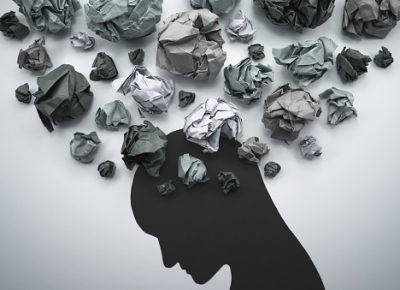
Anxiety in adults and children with neurodiversity can be very common. Are you looking for ways to decrease anxiety for yourself or your child? Children and adults with NVLD, ADHD, and autism experience anxiety during social interactions, transitions, and while doing school work. While some medications for ADHD help with focus, they can trigger or increase anxiety(as crashing by the afternoon or drastic mood changes). For those who experience the negative side of medications adding essential oils may be beneficial to soothe anxiety.
Historically, essential oils have been used around the world to promote healing and well being, spiritually, physically, and emotionally. So where do these oils come from? They come from plants, trees, shrubs, and flowers. Once going through a heat distillation process, only the plant extracts remain, creating what we call essential oils!
Selecting Essential oils for adults and children with neurodiversity
When finding the right essential oils for you, it is crucial to be sure that the product is truly all-natural and derived 100% from plants, containing no synthetics. The company that I am most confident in is doTERRA. They have a range of essential oil products from individual oils to different blends of oils, already formulated for a specific use.
Studies show vetiver oil to having positive effects for those with ADHD.. doTERRA also has a rollerball version of a blend called ‘In Tune’ that is very discreet and perfect for your child or yourself to take to school and other places to use as needed. Essential oils can be diffused, inhaled, massaged, and rubbed on your wrists. Be careful around your eyes, ears, and mouth to avoid irritation.
Vetiver is the best oil for focus and helps to calm emotions. Lavender helps for sleep, peppermint for motivation, and orange for mood.
As always, consult with your doctor before first before implementing any changes. Another important consideration is finding out which oils are and are not safe for your pets and can cause allergic reactions.
Check out doTERRA oils to see how they can help you! For more information watch my short video!
NVLD & Anxiety (adhd/autism/LD) Through the Roof!!Essentials Oils for NeuroDivergent Anxiety
Posted by ADDvantages Learning Center on Wednesday, February 5, 2020
Subscribe to My YouTube Channel
 Linda Karanzalis, MS
Linda Karanzalis, MS
Linda Karanzalis, MS, is a former special education classroom teacher with over 25 years of experience in the areas of learning disabilities, ADHD, social-emotional learning, social skills training, and behavior management
What do Trains Have to Do with ADHD and NVLD?

Have you ever set aside time to prepare for a task you know you had a deadline to complete? Such as cleaning your house, doing your taxes, or any other task, but you struggle to get started? If you’re able to start the task, does it ever feel impossible to stay focused long enough to follow the task through to completion?
Sometimes while working on the chore your brain may lead you to many other tasks the need completing as well, which can be extremely overwhelming! Think back to a time where you were able to complete a task successfully. Did you have a schedule keeping you on track? Did you reward yourself with a special treat after the task was completed? Was there anyone home with you while you were working on that task? For many adults with ADD/ADHD and learning difficulties, following a task through to completion can seem almost impossible. If any of this resonates with you, this video will be extremely helpful to you. My “train-tracking” method will be discussed, also known as ‘Body Doubling.” Both of these strategies can be very effective.
These aren’t just tools for adults, many children can be of use to this as well! If you have children, how is the homework process? Does it take a long time for your child to complete one assignment? Does your child do very well with one on one tutoring, but struggles to find the where withal to focus when they are by themselves. Sometimes people with ADD/ADHD and learning difficulties need a body double to help them get started. It may be as easy as having another person sit with you while you are working. The person sitting with you does not need to be interacting with you to be of service. Sometimes the energy of just having someone there makes all the difference!
NVLD,ADHD, and Trains??? Say What?Frustrated with getting you or your child started on homework and chores? This works and it's free and easy!
Posted by ADDvantages Learning Center on Saturday, January 25, 2020
Subscribe to My YouTube Channel
 Linda Karanzalis, MS
Linda Karanzalis, MS
Linda Karanzalis, MS, is a former special education classroom teacher with over 25 years of experience in the areas of learning disabilities, ADHD, social-emotional learning, social skills training, and behavior management
Listen to Linda on ADHD for Smart Ass Woman Podcast
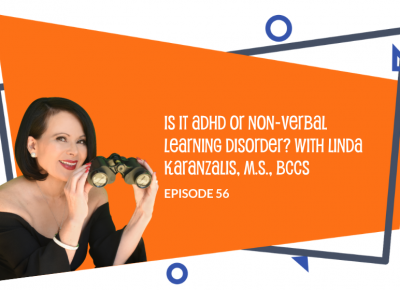
Episode 56: Is it ADHD or Non-Verbal Learning Disorder? with Linda Karanzalis, M.S., BCCS
Join Tracy and her guest Linda Karanzalis, in Episode #56 of ADHD for Smart Ass Women. Linda is a board-certified cognitive specialist and parent/student coach who provides executive function training and social-emotional learning programs for people of all ages. Linda also just wrote an article for ADDitude magazine’s Winter 2020 issue on ADHD and Non-verbal Learning Disorder.Linda shares:
- Her symptoms in childhood
- Her ADHD diagnosis
- How she figured out that she had something more than just ADHD
- Her Non-Verbal Learning Disorder (NVLD) diagnosis
- What NVLD looks like
- What percentage of communication is verbal vs non-verbal and why that matters
- Why those with NVLD actually talk more, not less
- What it means to not understand the meaning behind words and take things literally
- How to tell the difference between ADHD and NVLD
- Why those with NVLD are often misdiagnosed with ADHD
- Why NVLD is still not recognized in the DSM even though they are both brain-based conditions
- What happens to those with NVLD who are left untreated
How My Dad helped Me Growing up with a Non-Verbal Learning Disorder, ADHD, and Neurodiversity
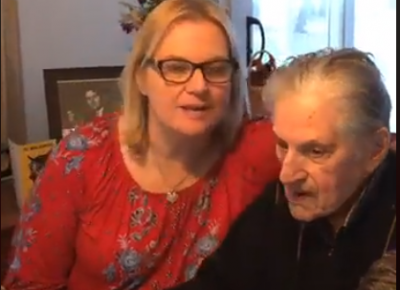 Learn how you can help your children of all ages by how my 98 yr. old dad helped me growing up with a non-verbal learning disorder, ADHD, and neurodiversity. Love to hear your thoughts!
Learn how you can help your children of all ages by how my 98 yr. old dad helped me growing up with a non-verbal learning disorder, ADHD, and neurodiversity. Love to hear your thoughts!
Non-Verbal Learning Disorders & Help from my 98 year old Dad!Learn how you can help your children of all ages by how my 98 yr. old dad helped me growing up with a non-verbal learning disorder, ADHD, and neurodiversity. Love to hear your thoughts!
Posted by ADDvantages Learning Center on Thursday, January 9, 2020
Parents of children with nonverbal learning disabilities and neurodiversities
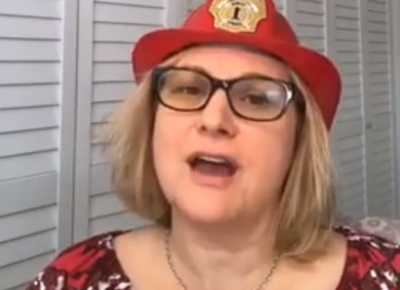
Parents of children with nonverbal learning disabilities and neurodiversities: Taking off the fire hat. How to instill Fire PREVENTION, instead of Fire FIGHTING.
Watch the Video & Learn from Linda’s struggles as a child with NVLD/ADHD and professional experiences how to help your child ‘Don’t be the fire fighter, be the coach! -Be a protector, but don’t shelter. Be a guide, a mentor, and a teacher for your child at any age.’
Goals :
• Don’t be afraid to have consequences. • Do not negotiate. Do not give in. • Teach resilience. There are no IEP’s and 504’s in the real world.You’re not a bad parent if you have expectations!
• Build off of your child’s special interests. • You can instill independent behavior from a young age. • Laundry, Cooking, Cleaning up • Let your child fail, do not overprotect they will learn from the experience with your guidance !Teaching problem solving :
• Encourage your child to think and “Try another way.” • Tools to handle social situations.The Confusion of Non-Verbal Learning Disorders
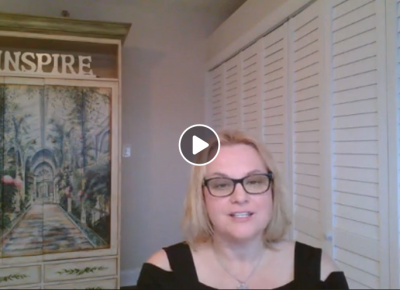 This is a topic I’m very passionate about. Not only am I a learning specialist, but I also have NVLD. So, it’s no surprise my life’s mission is to help others to not go through years of struggling and pain like I did. Back when I was in school virtually nothing was known about NVLD, however we are now just starting to identify it. To make matters more confusing the name in itself indicates a person is non-verbal!
Scroll down to Watch My Video!
This is a topic I’m very passionate about. Not only am I a learning specialist, but I also have NVLD. So, it’s no surprise my life’s mission is to help others to not go through years of struggling and pain like I did. Back when I was in school virtually nothing was known about NVLD, however we are now just starting to identify it. To make matters more confusing the name in itself indicates a person is non-verbal!
Scroll down to Watch My Video!
What are Non-Verbal Learning Disorders (NVLD)?
It’s a neurological difficulty in processing non-verbal communication also known as ‘dyssemia.’ Children and adults with NVLD are typically affected in all or some of the following areas: motor skills (coordination), visual-spatial (discrimination of differences of objects, visualization of images, determining one’s location of body in space), academics (particularly math), social-emotional learning (reading facial expressions, body language, literal interpretation of language), and executive functions. Despite the challenges, those with NVLD have average to above-average intelligence. It’s not a cookie-cutter diagnosis as its effect varies per person. What typically isn’t discussed is those with NVLD are dyssemic, meaning they are unable to make the connection between their behavior and its impact on others. They know they are doing something wrong but they don’t know the specifics of what causes people to move away from them. As a result, they repeatedly make the same mistakes time and again. Can you imagine the pain and isolation?What is the Cause of Non-Verbal Learning Disorders (NVLD)?
The neural connections between the left and right hemisphere are not being made which impair the interpretation of non-verbal language. Research has proven those with non-verbal learning disorders have smaller brain spleniums than those with ADHD, other learning disabilities and high functioning autism. Even though there can be an overlap of symptoms, the causes are different according to this research.Watch My NVLD Video to Learn More . . .
Non-Verbal Learning Disorder and DyssemiaPosted by ADDvantages Learning Center on Saturday, December 14, 2019


